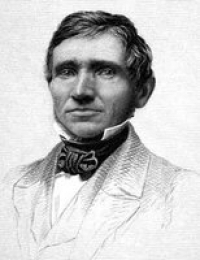Goodyear, Charles (Mining & Materials)
Goodyear, Charles
Charles Goodyear (1800-1860), American inventor who developed vulcanization, a process that strengthened rubber, allowing the material to be applied to a vast array of industrial uses, especially in automobile tires. Natural rubber products were waterproof, but they melted in hot weather, froze and cracked in the cold, and adhered to many substances—attributes that limited its usefulness to industry and consumers. In 1836, Goodyear found that the application of aqua fortis, or nitric acid, produced a much more useful and desirable form of rubber. The famous vulcanizing process, developed by Goodyear in 1844, revolutionized the rubber industry, but Goodyear was unable to profit financially from his discovery. His numerous patents were constantly infringed, and although he was able to establish his rights legally, he died a poor man.
Further Reading
Inventor Profile: Charles Goodyear (National Inventors Hall of Fame)
History of Goodyear (Goodyear Tire & Rubber Company)
The Charles Goodyear Story (Goodyear Tire & Rubber Company)
